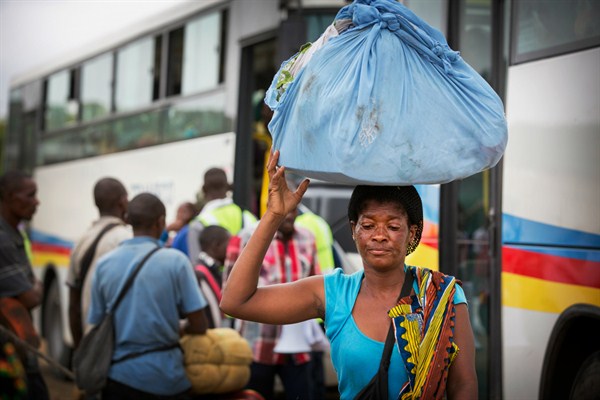Over 130,000 citizens of the Democratic Republic of Congo (DRC) have been deported from or otherwise driven out of the neighboring Republic of Congo since April 4. The U.N., backed by multiple human rights groups, has declared these expulsions “an acute humanitarian crisis” and accused security personnel in the Republic of Congo of physically and sexually abusing the deportees. More than 2,400 of these deportees lack the resources to return to their homes and have ended up in a refugee camp on the outskirts of Kinshasa, the DRC’s sprawling capital.
“This issue of immigration from DRC to Brazzaville is a perennial one,” says John Clark, an expert on both countries at Florida International University. “Since the 1970s, the government of Brazzaville would expel tens of thousands at a time.” Clark says the border, most of which is delimited by the Congo River, is not well-enforced and sees frequent crossings. The Republic of Congo, while certainly not rich, has a per capita GDP nearly 10 times higher than the DRC. This disparity is a product of the Republic of Congo’s oil resources, which account for over 90 percent of its exports, as well as its small population—4.6 million, compared with nearly 80 million in the DRC—and its relative stability, which contrasts with the DRC’s years of violent conflict. All these factors work to draw in migrants from the DRC, many of whom find low-wage work or end up in the informal economy, often as sex workers.
The two national capitals, Kinshasa and Brazzaville, are directly opposite each other on the Congo River, but not connected by any bridge, a mark of the two countries’ limited economic integration. Brazzaville’s urban poor face direct competition for jobs from DRC migrants, driving resentment and making social prejudice common against the so-called “Zairis”—a pejorative term for people from the DRC—more than 400,000 of whom remain in the Republic of Congo. Nonetheless, the scale of the latest wave of deportations has shocked many observers.

